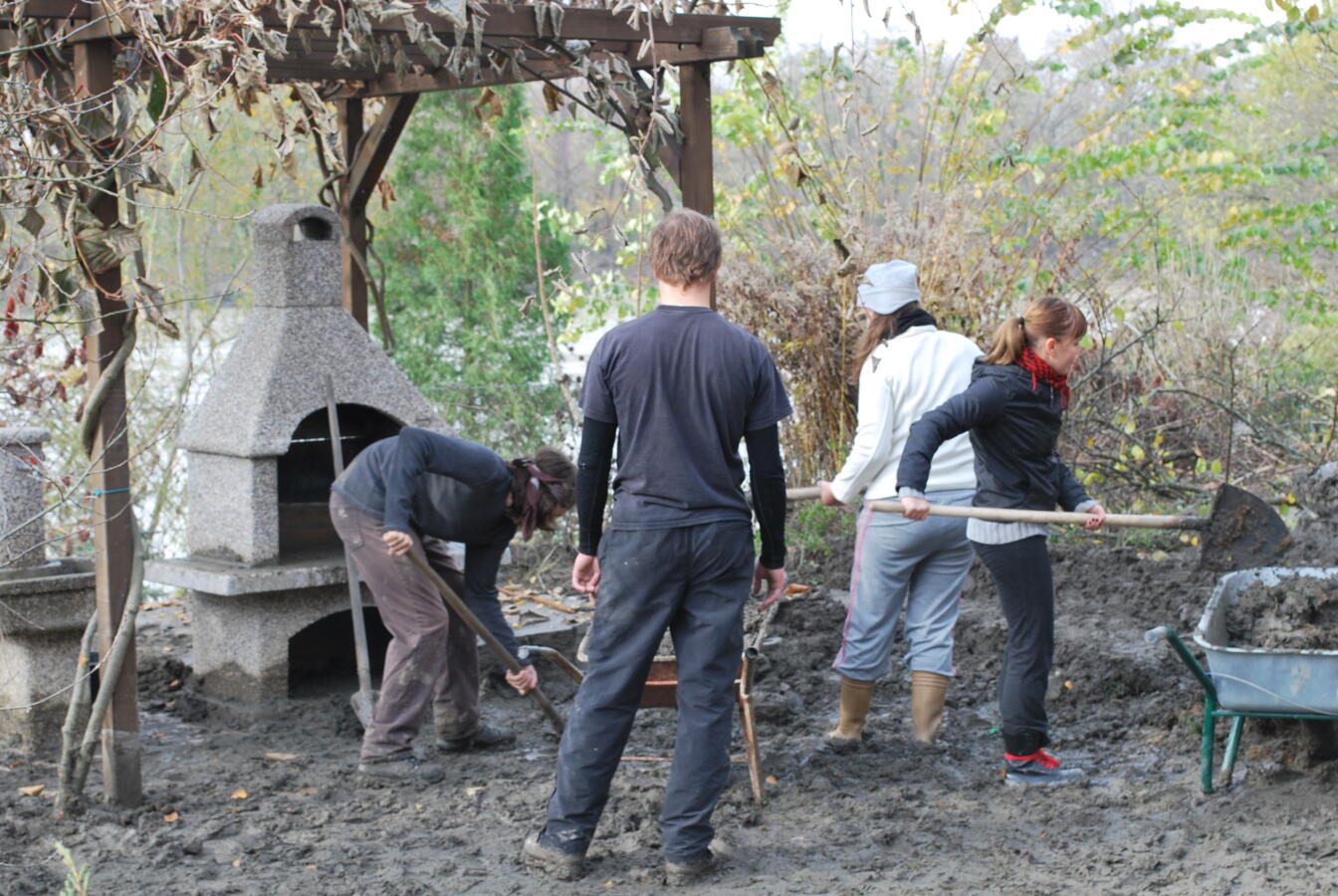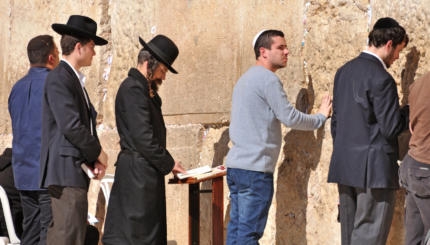Very often the term gemilut hasadim is translated as acts of loving-kindness. It is used to describe everything from the work done by synagogue bikur holim committees [that visit the sick] to service projects designed for high school students to lessons on how to treat a homeless person you pass on the street. The words gemilut and hasadim actually communicate some very specific ideas as well.
History of an Idea
In one of the first adult education classes I was teaching on Judaism and service, a woman asked, “What does gemilut mean?” The dictionary meaning of the root g-m-l that is most supported by ic usage is reciprocal acts. Gemilut signals that these are acts done in the context of a relationship with a built-in notion of benefit or compensation in return for the act. This immediately differentiates our tradition from those that emphasize the selflessness of service. The Talmud supports this, stating that the reward for service is in this world, not in the world to come (Shabbat 127a). Service can and should be valuable in some way to the person engaged in it.
Chesed appears in the to communicate God’s kindness and love toward humanity as well as human kindness and love toward each other. Chesed emerges as one of the essential ways humans engage with God to sustain creation. For example, in the story of Sodom and Gemorrah (Genesis 18:17), the 15th century Italian commentator, Seforno, notes that the reason that God decides to engage with Abraham in discussion is based on the chesed that Abraham showed to the angels who visited him just prior to this in the text (Genesis 18:2). Consequently, Lot and his family are rescued by God after Lot has tried to show hesed, in the form of hospitality, to his guests. Human chesed here results in evoking God’s chesed.
The Talmud further establishes chesed as one of the core pillars of human behavior. (“The world rests upon three things, Torah, avodah, and gemilut hasadim.” Pirkei 1:2) The term gemilut hasadim is distinctly post-biblical and occurs for the first time in the Mishnah. In the Babylonian Talmud, 49b, a discussion is related defining chesed by contrasting it with the other fundamental Jewish value of . Chesed is laid out as the broader value because it can be done not only with money, but also with one’s person. It can be given to the rich and the poor, the living and the dead. It furthermore states that, “The reward for charity depends entirely upon the extent of the kindness in it.”

Help us keep Jewish knowledge accessible to millions of people around the world.
Your donation to My Jewish Learning fuels endless journeys of Jewish discovery. With your help, My Jewish Learning can continue to provide nonstop opportunities for learning, connection and growth.
[The medieval commentator] Rashi’s comment on this line succeeds in communicating the essence of their thinking. He writes that the actual giving of money or goods is tzedakah, and the tirkhah (the care, the bother) is the hesed. For example, when a person takes the trouble to give a poor person money in a compassionate manner and at a time when the poor person can use it well, he or she has brought chesed to the act of tzedakah. Rashi further states that chesed is when you give your heart and mind to the well-being of the poor person. Chesed occurs when there is understanding between two people and when the command to “love your neighbor as yourself” is fulfilled (see Mishneh Torah, chapter 14).
Acts of chesed are the active representation of a covenant among people, a social contract. This, as noted above in the discussion about Lot, has the mythic power to actively engage God in the covenant as well. This is not about simply getting a request in the mail for funds and writing a check, or bringing a can of soup to a box at your JCC or synagogue. It is not even about showing up once a year at the homeless shelter or soup kitchen or writing letters to Congress to effect social policies. Those are truly important, relevant acts, but they fail to engage people in relationships of understanding. It is when we become engaged with real people and communities on the other end of our giving of time and resources that we realize the covenantal aspect of chesed.
The Meaning of Suffering
There is much we can learn from these initial texts. On a practical level, a person who has received love and aid is far more likely to be able to pass on chesed to another person. Through acts of chesed (supported by tzedakah) where you treat someone like a human being, b’tselem elohim (in the image of God), with the respect they deserve, that person can be restored to the community. He or she can overcome the stigma of poverty, frailty, disease, or loneliness and can themselves become engaged, empowered actors of chesed.
The Talmud teaches (Shabbat 127a) that the reward for gemilut chasadim is in this world. How can we begin to understand this? Emanuel Levinas teaches that the meaning of suffering is in the opportunity for the other to respond to that suffering, to embrace the sufferer and, through doing so, bring God into the world. Suffering is meaningless for the sufferer. It only holds meaning when considering the perspective of the observer. The only meaning for suffering is the redemptive power it may have for the person who may bear witness to that suffering; indeed, our responsiveness to suffering may be our only means of redemption. When we respond to the other at a time of need, we fulfill our humanity and can find existential meaning in life.
Practical Suggestions: Jewish Service Learning
Jewish service learning does not call for a straightforward curriculum of Jewish teachings on how we treat a sick person or our responsibility to respond to those who are hungry or homeless. We need to create a communal consensus around the notion that volunteering is part of living a Jewish life. Chesed, like Torah Lishmah [studying Torah for its own sake], is meaningful in and of itself, but it is also rich with opportunities for learning and connecting with community.
Whenever you face desperation, pain, poverty, or isolation, whenever you open yourself up to contact with these difficult experiences and meet individual people with chesed, you will be challenged to consider some of the basic ideas of your personal theology. How can God allow this to happen? Why do I (the volunteer) have the privilege of living, blessed in the world? All of these issues and so many others can and should be discussed within a Jewish context, using Jewish and non-Jewish sources, including Rabbinic, historical and modern concepts.
In addition to being a prominent Jewish value, service is one important answer to the individual’s search for meaning and desire for true relationships in life. The Jewish American community has done a decent job of making tzedakah a central Jewish value–now it is time to embrace chesed. In doing so, we have the opportunity to bridge service and learning and to set a standard for excellent service programs.
Reprinted with permission from Jewish Education News (Spring 2001), published by the Coalition for the Advancement of Jewish Education.



